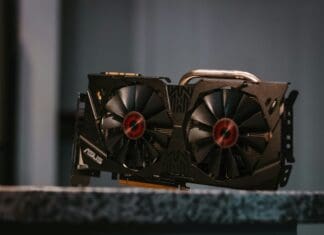This post is also available in:
 עברית (Hebrew)
עברית (Hebrew)
You may have heard the term “blockchain” used when people talk about cryptocurrencies like bitcoin. If you’re unsure of what it means, think of blockchains as ledgers that keep track of transactions. In the case of bitcoin, the blockchain is a record of financial transactions between parties. The blockchain is decentralized, meaning that no one is in charge of it, and the data isn’t owned or stored by any one company, but rather dispersed across many computers.
Blockchains can be used for much more than just keeping track of cryptocurrency transactions though, and a handful of companies are figuring out how to benefit from the technology.
- Companies are already working on blockchain-based identification.
Microsoft and Accenture recently teamed up to create a prototype ID system for a United Nations project aimed at providing legal identification to more than 1 billion people in the world. This blockchain-based ID would be especially useful for refugees who have left their home without any official paperwork. The idea could potentially be used for anyone though, to allow travelers to access their personal information anywhere.
- Not many IT industry leaders are implementing blockchain just yet.
Just 13% of senior IT leaders say that they have a clear plan to use blockchain for their business.
- It could save banks billions of dollars.
American Express has already implemented a technology created by a company called Ripple that allows some of its international transactions to be processed through a blockchain. It speeds up the process and makes an international transaction instantaneous, as opposed to taking several days. Banks could save $8 billion or more per year if they used the tech for their transactions, according to Accenture.
- Blockchain technology could revolutionize medical record keeping.
Accessing your own medical records can be a difficult thing to do because your records are spread among many different medical professionals, doctors’ offices, and hospitals. But some companies, like Israel-based Proof Work, want to create a blockchain where patients can easily access their own personal medical records without having to contact any doctors’ offices. This would give patients more control of their own records and make it easier for them to track their own health.
- Blockchains can help with food recalls.
Walmart has started using blockchain technology to track where mangos, berries, and some other products come from so it can determine where bad food originated during a recall. The company is working with IBM to track the food, and in one test Walmart was able to determine where bad food came from in just two seconds, as opposed to results taking nearly a week under their current system.
- The Internet of Things (IoT) could thrive using blockchains.
IoT devices are expected to reach 50 billion by 2020, and all of those devices need to be able to exchange information easily with each other and offer their users a certain level of security. IBM says that its IoT Platform can track packages in a supply chain, update where they are and even what temperature they’re stored at, and allow companies to easily check on shipments in real time.
- The global blockchain technology market is growing fast.
The blockchain market was worth about $317 million in 2015, but it’s expected to grow to $20 billion by 2024, according to host.madison.com.


























